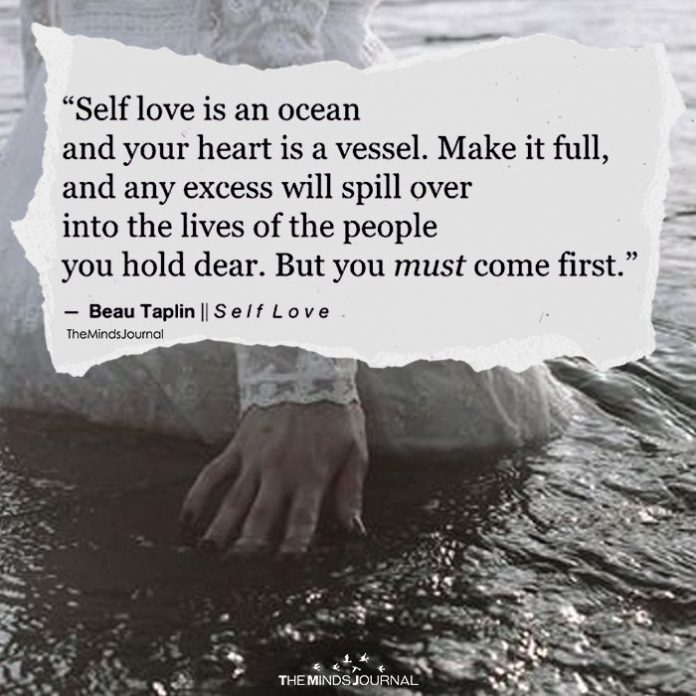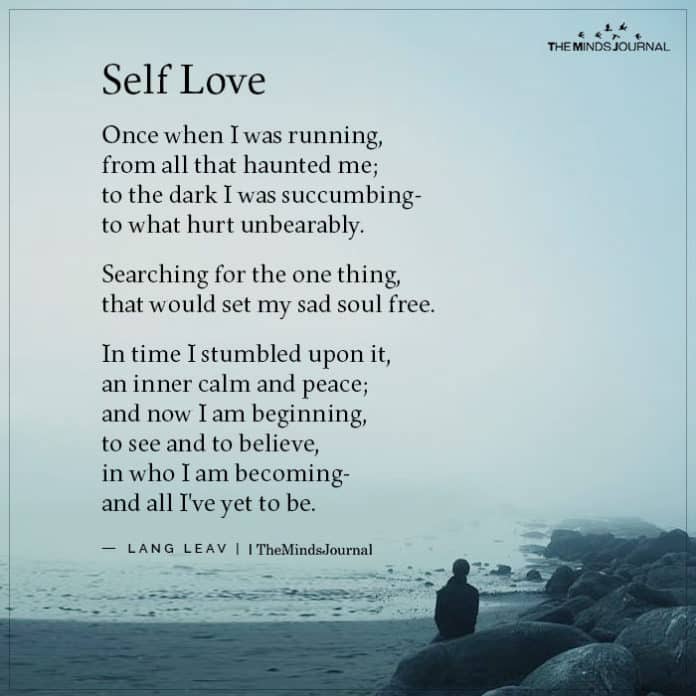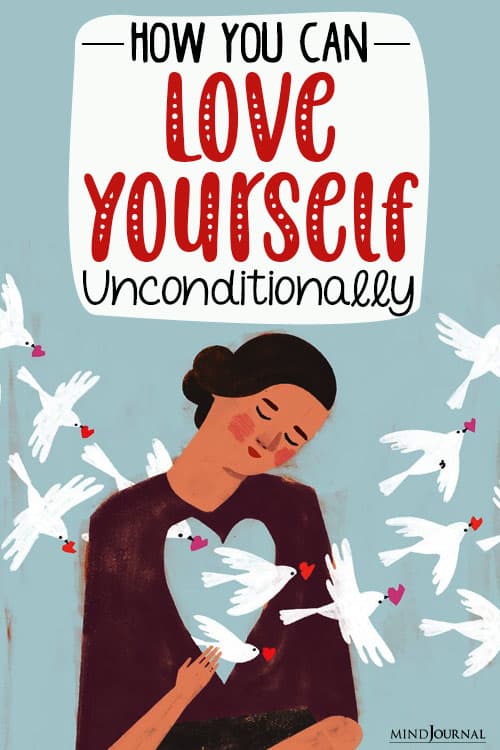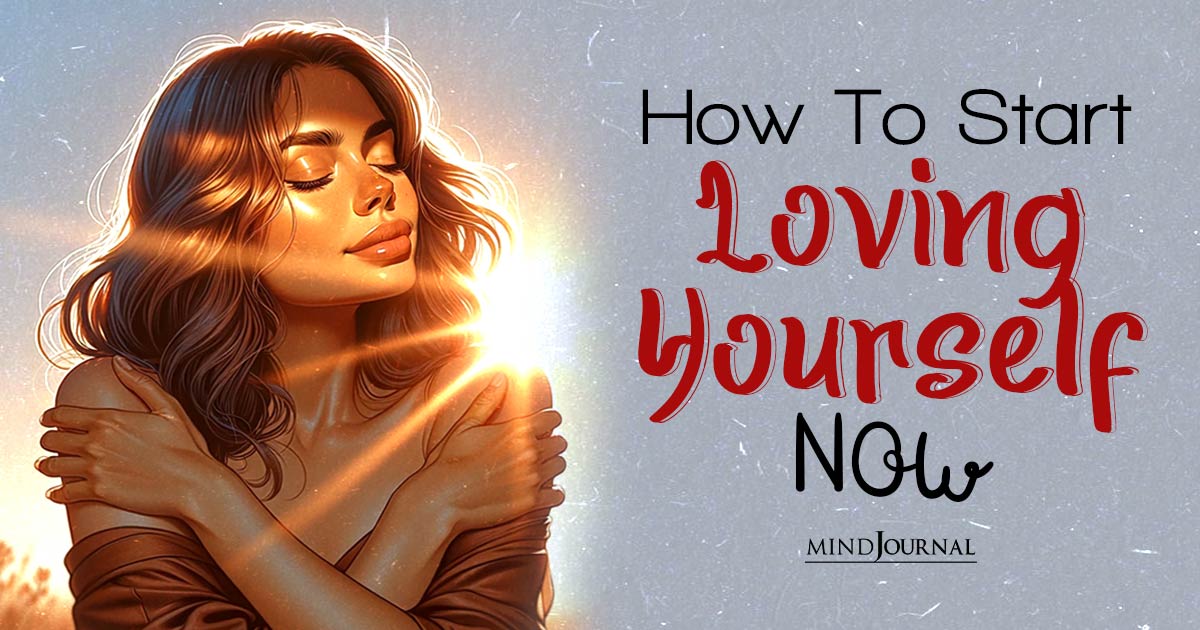If you have ever wondered “how can I love myself unconditionally?”, then remember that embracing self-love is a journey where kindness is a constant companion. Let’s explore how you can learn to love yourself unconditionally and unlock the path to genuine happiness.
Loving yourself is an inside job.
Far too often, we trick ourselves into believing that “when I have this, I’ll feel better about myself. When they love me back, I’ll love myself too. When I get the car, the job, the salary, the partner, the ideal weight, I’ll love myself.” But it doesn’t work like that.
Most of us know the line, “You can’t love anyone until you love yourself.” Well, I completely disagree with this statement. First of all, who says? Always question your sources. Second of all, how many of you have struggled with self love and yet felt such raw and unrequited love for another person?
Related: When You Start Healing Yourself, The Rest Will Fall Into Place
How You Can Love Yourself Unconditionally?
For the parents reading this post, ask yourself this: Are you unable to love your children when you feel as though you don’t love yourself? Does your love for them dwindle as you get tied up in your own shame and low self-worth?
I’m assuming your answer is no. You continue to love them unconditionally.
Let’s look at an individual with low self-worth, for example. He or she may love others strongly, too strongly perhaps, to the point where they put the other person on a pedestal and require their love and validation to feel okay about themselves.
How about the person who’s sitting in shame and self-loathing right now, but has an infinite amount of love for their parents, their siblings, their friends, their significant other, or an ex?
We may be able to love others if we don’t love ourselves, but we don’t know how to love healthily.
When I was in my 20s (I still am, by the way, but I’m nearing 30 now), I put so much of myself into my relationships. A part of me had always felt inherently flawed; that I was too much, too little, not enough, or excessively “difficult.”
I told myself I was difficult to date because I think and feel things deeply. Because I seek to dive below the surface to better conceptualize a person, situation, or life itself. I shamed myself for not being able to live on the surface of life, skimming the shallows, and not needing to explore the deep end like so many people I know.

I absolutely did not love myself. I didn’t have many reasons to; I was consistently lying, manipulating, and by no means cultivating self-esteem. I was seeking externally to fill internally. (Pro tip: to have self-esteem, start by doing esteemable things.)
I did, however, love the people I dated.
Related: Self Abuse: 7 Ways You Can Stop Abusing Yourself And Practice Self Love
I don’t believe in looking back at our past selves and shaming them for not knowing enough or not feeling as intensely as we thought we were. Everything I felt back then was real. Everything I feel now is real.
I change, the lens through which I look at life changes, but the feelings stay as real as I believe them to be.
Here’s the kicker: I didn’t love myself, and therefore I was unable to accept love.
Brief Recap
If we don’t love ourselves, we can actually still love others. If we don’t love ourselves, we cannot accept love from others. I’ve quoted this over and over in my posts, but this will always be my favorite line: “We accept the love we think we deserve.” –The Perks of Being a Wallflower
I can give love all I want, but I can’t accept it if, at my core, I don’t believe I’m worthy of it.
If I were to ask you if you love yourself right now in this very moment, how would you answer? No prefaces, no caveats, no BS details about why. Yes or no. Do you? If you don’t, what’s blocking you?
Second question: Do you believe you’re worthy of love, affection, and belonging? Again, if the answer is no, then why?
For me, my self-worth was contingent on the fragile and ever-changing state of my relationships. I found worth in academic success, in athletic accolades, and most of all, in the way people looked at me and felt about me. It was all rainbows and sunshine until I got rejected. I felt like a queen until I was broken up with or denied.
Do you rely on validation in your relationships? I certainly used to. How can you give yourself validation, affection, love, attention, and belonging? What can you do for yourself, not contingent on anyone else?

This has absolutely been the key to my finding and accepting love. It begins and ends internally. The relationships I have today are a wonderful byproduct of the relationship I continue to cultivate with myself. And I do that by prioritizing myself.
- I say “no” a lot more now.
- I practice healthy boundaries in all of my relationships (to the best of my ability).
- I fall short on a daily basis and forgive myself for being human.
- I refuse to allow my shame narratives that tell me I’m not good enough or too much.
- I journal on an (almost) daily basis, and always include gratitude and affirmations.
- I laugh at myself!
- I ask for help.
- I try to remain teachable every moment of every day.
- I find room for growth and fill it with self love and compassion.
- I try my darndest to practice what I preach, so as to not throw myself into a state of hypocrisy and cognitive dissonance.
- I acknowledge the flaws, embrace them, lean into them, and write them all out on here.
Because what I’ve learned above all else, is that human beings connect via their imperfections, not the social media highlight reel of their life which sends each of us into a state of an emotional and isolating abyss.
Give yourself the gift of self love. You can’t accept anyone else’s love if you don’t believe you’re worthy of it, anyway. Stop seeking outside of yourself for anything to fill the gaping void inside of you that only you can fill.
Related: 5 Ways To Improve Your Relationship With Yourself
You are worthy. If you’re still reading this very spontaneously written piece, that means that you’re still seeking some answers.
Never forget, though, that everything you are looking for is inside of you already. Your job is to find out what’s blocking you from tapping into that internal light and love. And smash it with a hammer.
Because today, I love myself. Fully and completely. And I invite you to give yourself the chance to feel the same about yourself. It’s really quite nice.
Want to know more about unconditional self love, and how to love yourself unconditionally? Check this video out below!
Written By Hannah Rose
Originally Appeared On Psychology Today












Leave a Reply